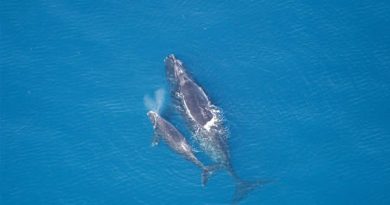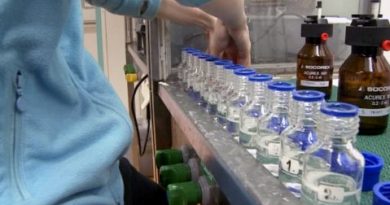Greenland to join Paris climate agreement
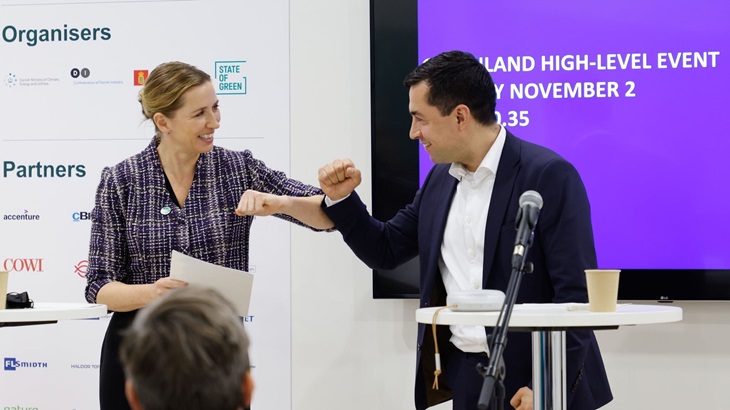
Greenland marked its intension to join the Paris climate accord on Tuesday by handing a letter to Danish Prime Minister Mette Frederiksen at COP26, outlining the withdrawal from its territorial reservation from the agreement.
“It is with great joy and honor that I can inform you, that it is the wish of the Naalakkersuisut [Government of Greenland], that the territorial reservation of the Kingdom of Denmark for Greenland to the Paris Agreement must be withdrawn,” Greenland’s Prime Minister Múte Bourup Egede said in the letter.
“Greenland can fully support the purpose of the Climate Convention, and especially the objective of the Paris Agreement’s goal of keeping the global temperature well under the pre-industrial level of 2 degrees, and in continuing the efforts to minimize the temperature increase to 1.5 degrees.”
The letter comes after the Greenlandic government announced on Monday, that they’d made the decision on October 25 to join the accord.
“The Arctic is one of the areas on our planet where global warming is felt the most, and we at Naalakkersuisut believe that we need to take our share of responsibility,” Egede said in a news release.
Oil exploration suspended earlier this year
Greenland, with a population of 56,000 people, has had home-rule government since 1979, with Denmark responsible for things like foreign affairs and the military.
Denmark also provides an annual subsidy of 4.5 billion Danish kroner (approximately $900-million CDN). Greenland’s eventual goal is independence, but was looking first to develop the economy in a way that could make up for the loss of the subsidy.
Oil was long seen as a potential revenue generator for the territory that could help it reach independence, and in 2016, Greenland invoked a territorial exemption from Denmark, when that country acceded to the Paris climate agreement.
But since then, the hoped for oil boom in Greenland has not lived up to expectations and the remoteness of Greenland has made exploration risky and expensive.
The last decades is also strewn with exploration failures around Greenland, including Cairn Energy, a company that spent $1.2 billion on oil exploration in the region which yielded no results. Statoil also exited several licenses off the west coast of Greenland in 2015.
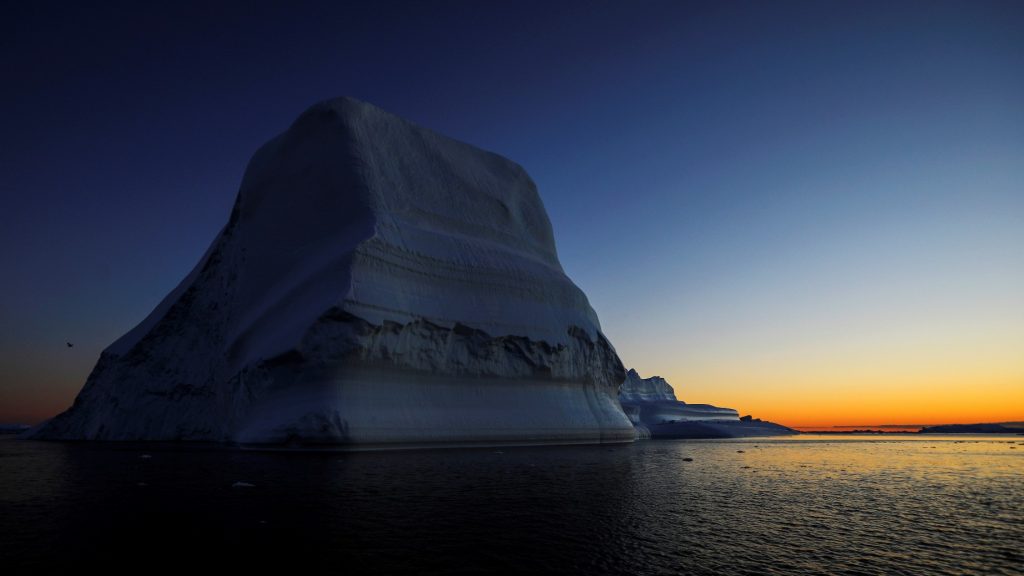
A new government was elected in Greenland this April and by June decided to suspended oil exploration in the territory saying it would have negative effects on Greenlandic society as well as contributing to the global climate crisis. It said that instead, it wanted to focus on developing Greenland’s renewable resources.
On Monday, the government hammered home its commitment to developing the country’s hydropower potential.
“The future belongs to renewable energy, and in that respect we have much more to gain,” the government said.
“Greenland has hydropower resources that exceed our country’s energy needs. These large hydropower resources can be utilized in collaboration with national and international investors who need large amounts of cheap and renewable energy for, for example, data centers or as input for storing energy in hydrogen via P2X processes.”
Approval process to be completed by 2022
In Tuesday’s letter, Egede said it was important Greenland does its part for the Arctic.
“The Arctic and Greenland has been particularly hit by the rise in temperatures, and it is evident that Greenland wishes to shoulder its fair share of the shared but differentiated responsibilities and respective possibilities in light of different national circumstances,” he said.
The Greenlandic government will now present its proposal to rejoin the Paris agreement to the Greenlandic Parliament and then follow the ratification process, expected to be completed in 2022.
“When the approval process has been finalized by Greenland, we will launch the work of formulating the Greenland climate strategy in accordance with the instructions of the Paris Agreement, in such wise that Greenland can notify a Nationally Determined Contribution (NDC), which will serve as
Greenland’s contribution to the fight against global warming,” Egede said.
“The coming NDC of Greenland will be made in accordance with Greenlandic conditions and circumstances.”
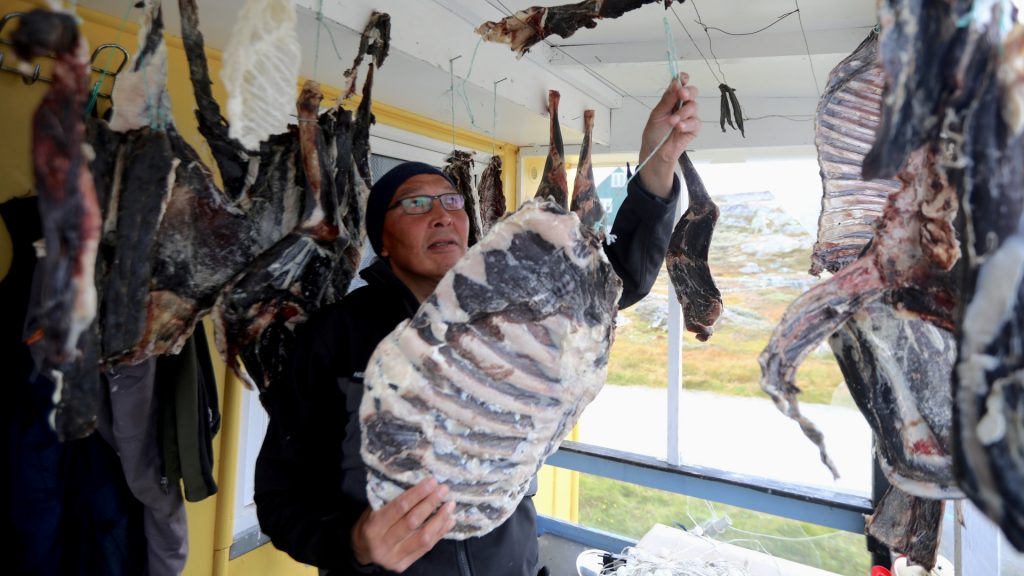
Greenland will accede to the Paris climate agreement as part of the Kingdom of Denmark, but under the condition that Greenland’s NDCs will not burden Denmark’s commitments and that Denmark’s commitments will not burden Greenland, Egede said.
“It is the intention that the coming NDC of Greenland to a greater extent will impose an obligation to Greenland to ensure the green transition of the Greenlandic society, which still will provide space and opportunity for the economic development of a self-governing country, in which the majority of
the population can claim rights for development as Indigenous peoples,” he said. “This will be respected in a future Greenlandic NDC.”
COP26 runs until November 12.
Write to Eilís Quinn at eilis.quinn(at)cbc.ca
Related stories from around the North:
Canada: Continued sea ice loss could alter food web for some Arctic marine predators, says Canadian study, Eye on the Arctic
Finland: Climate change worries Finland’s young reindeer herders, Yle News
Greenland: WMO provisional climate report outlines shrinking sea ice extent & decreased glacier mass in Arctic, Eye on the Arctic
Norway: Norway’s new government highlights fight against climate change and continued oil drilling, The Independent Barents Observer
Russia: City in Arctic Russia cooling ground to preserve buildings on thawing permafrost, The Independent Barents Observer
Sweden: Sweden aims to be ‘role model and bridge builder’ on climate change, Radio Sweden
United States: Inuit leaders call for “unprecedented and massive” action on climate as world leaders gather for COP26, Eye on the Arctic

